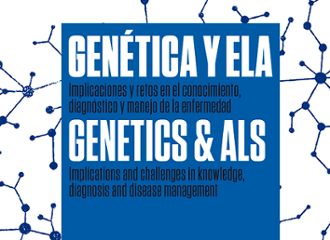Research projects
Start of main content
Dynamic Liquid-Crystal Colloids with Biomimetic Actuation, Recognition, and Adaptation
22st national competition for scientific and technical research
New materials: fundamentals and applications
Senior Researcher : Alberto Concellón Allueva
Research Centre or Institution : Instituto de Nanociencia y Materiales de Aragón. Universidad de Zaragoza
Abstract
Nature is an endless source of inspiration thanks to its sophisticated processes for motion control, signal recognition, and information transmission. However, understanding the mechanisms behind these phenomena and applying them to the design of advanced materials remains one of the major challenges in science. This project addresses that challenge through the development of novel artificial self-assemblies capable of behaving as autonomous biomimetic systems.
Our approach focuses on dynamic liquid crystal colloids (DLCs), a system we pioneered in previous research, which exhibits remarkable similarities to cells in both structure and function. DLCs stand out for their responsiveness to external stimuli and their versatility in incorporating functional molecules within them. These features make them an ideal platform for creating next-generation smart materials with biomimetic properties such as actuation, supramolecular recognition, and autonomous adaptation to changing environments.
The research plan is organized around two main objectives inspired by natural systems: (1) To design DLCs capable of generating motion or performing work through mechanisms such as pumping or translocation; and (2) To endow DLCs with memory and adaptive capabilities, emulating functions observed in living systems.
In essence, this project aims to lay the groundwork for advanced supramolecular platforms capable of autonomously responding to specific stimuli in complex environments. Gaining insight into the structure-activity relationships in these systems will open new avenues in fields such as soft robotics, advanced sensing, and controlled drug delivery. Beyond scientific advancement, the project aspires to offer practical and innovative solutions that will transform the way we interact with functional materials, generating meaningful benefits for society.
-
 Activities related
Activities related
-
 Projects related
Projects related
-
 News related
News related
-
 Publications related
Publications related
 Activities related
Activities related
-
26
Jun
2024
Conferencias La aventura de la ciencia Madrid, Miércoles 26 de junio de 2024, 19:00 horas
-
13
Feb
2025
17th edition. Cycle of conferences and debates in science Digital Twins: Technological Advances and Application Opportunities Madrid, Thursday, 13 February 2025, 17:30 hours
-
18
Feb
2025
Session New Therapies for the Inflammation Treatment Madrid, Feb 18th, 2025, Tuesday. 4PM
 Projects related
Projects related
- Development and Application of saRNAs for the Treatment of Rare Monogenic Diseases 2024 Senior Researcher : María Luisa Cayuela Fuentes
- CHANNELOSOME RESCUING PEPTIDES IN THE TREATMENT OF ARRHYTHMIAS IN INHERITABLE HEART DISEASES 2024 Senior Researcher : José Jalife Research Centre or Institution : Centro Nacional de Investigaciones Cardiovasculares (CNIC). Madrid
- Mechanisms for sustaining mitochondrial genome integrity and function during hematopoiesis. 2024 Senior Researcher : Ana Victoria Lechuga Vieco Research Centre or Institution : Fundació Clínic per a la Recerca Biomèdica. Hospital Clínic. Barcelona
 News related
News related
 Publications related
Publications related


End of main content



